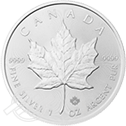Home Storage Gold IRAs: A Guide
Gold IRAs offer a fantastic way for investors to diversify portfolios, and they’ve become an increasingly popular method to hedge against inflation and protect assets. But they’re also subject to stringent storage requirements that practically never allow for home storage.
That presents a challenge for some investors, who want to extend the “hands-on” approach to self-directed IRAs to where they keep the precious metals they’ve purchased. You can keep purchased precious metals in your home, but not as tax-advantaged assets that are part of a Gold IRA.
Why? For most individuals, home storage Gold IRAs are a legal impossibility for a whole host of reasons.
Home storage Gold IRAs may exist as a hypothetical, but the number of qualifications that make them legal is practically insurmountable. Let’s walk through what it takes to qualify for home storage Gold IRAs, why that name is a misnomer, and how to avoid scams that present it as an option to the typical retail investor.
How Do Home Storage Gold IRAs Work?
Scammers often tout home storage Gold IRAs as a convenient way for investors to directly manage their gold investments. These claims suggest that a home storage Gold IRA allows you to have personal physical access to your gold. It’s meant to provide a sense of security and immediacy that investors might find appealing. Proponents even argue that it gives you greater control over your retirement savings and offers protection against economic instability.
The false promise here is that investors can legally buy gold through the IRA and store it wherever they please, including your home. Ads might stress that doing so allows you to avoid third-party depositories’ storage fees or reduce the amount of money you need to pay a custodian to handle transactions.
While this all sounds feasible and attractive, it’s not even close to legal. The IRS has strict rules and regulations regarding IRA assets. These restrictions make home storage of Gold IRAs problematic at best and potentially illegal at worst.
That leads to two questions:
- What are these restrictions and rules?
- Is there any potential way to skirt them to store a Gold IRA’s contents at home?
IRS Rules for Self-Storage Gold IRAs
Let’s be clear about one thing first: The IRS does say you can buy physical gold to store in a home safe. But you cannot do so with IRA-purchased gold or other precious metals.
The IRS code defines which types of precious metals (gold, silver, platinum, and palladium) you may buy for a self-directed IRA, and it also points out clearly that these items must remain in “the physical possession of a trustee.” These nonbank trustees and custodians must abide by a set of strict requirements. All nonbank trustees or custodians must file a written application (not a form) to the IRS that demonstrates their ability to meet the following requirements:
- A valid state and date of incorporation that shows how long the applicant has operated their business.
- Assurances of uninterrupted fiduciary duties and proof that the applicants have met qualified safe harbors to satisfy diversity of ownership.
Corporate applicants and partnership applicants have different safe harbors to satisfy these requirements. If the applicant doesn’t meet one of them, the IRS applies a facts and circumstances test that includes:- Concentration of ownership
- Overall financial condition
- Regulatory supervision
- Substantial business operation
- Non-owner management
- Unique circumstances
- Proof of a business location that is accessible during the business day and with an actual street address.
- Fiduciary experience with retirement plans
- Financial responsibility, including a high degree of solvency, liquidity, and regular debt payments.
- Competence accounting for a significant number of individuals.
- Demonstrated competence in handling retirement funds.
- A written document for the rules of conduct for administering their retirement funds. These rules must meet the requirements found in Treasury Regulation Sections 1.408-2(e)(5)(i) through (viii).
- Adequate bonding, with a minimum amount of $250,000.
- A net worth of at least $250,000, based on the most recent audited financial statements.
Most retail investors in gold and other precious metals cannot satisfy these requirements. Only the most affluent members of the investor class—namely those who are already financial advisors—could hope to do so.
While the allure of direct access to your gold investment might sound promising, the reality is that home storage Gold IRAs are fraught with legal and regulatory challenges. Working with reputable custodians ensures compliance and can safeguard your retirement assets. It also helps you avoid the penalties that come with improper Gold IRA storage.
Penalties for Home Storage IRAs
Non-compliance with IRS regulations leads to serious penalties, especially if you engage in prohibited transactions. Some of the consequences of not properly conducting your Gold IRA business include the following penalties:
- Taxes on distributions: Should the IRS determine your at-home storage counts as a distribution of your IRA funds, the amount involved is subject to income tax. This might mean a significant tax liability.
- Early withdrawal penalties: Aside from regular income taxes, removing funds from your IRA before you turn 59 ½ could count as an early distribution. That means an additional 10% early withdrawal penalty might apply.
- Disqualification of your entire IRA: In severe cases, the IRS might determine that your entire IRA has been distributed and taxable in the year where the prohibited transaction occurred. This means you lose your tax-advantaged status and could owe a significant tax bill.
- Excise taxes: Participating in a prohibited transaction could open you up to excise taxes, further increasing your financial penalty.
- Legal fees and additional costs: If the IRS challenges your home storage arrangement, you might incur legal fees and court costs trying to defend your actions. These expenses add up quickly, compounding losses.
How to Invest in a Gold IRA
At this point, you’re probably sensing a theme that even attempting to store your Gold IRA precious metals at home is a terrible idea.
Instead of flouting the law and risking the loss of thousands of dollars, properly invest in a Gold IRA by working with a reputable company, such as Advantage Gold. We won’t suggest skirting regulations and storage fees to make commissions on your gold purchase.
Instead, we will help you open your Gold IRA, properly fill out all associated paperwork, and roll over your funds. We put you in direct contact with vetted gold sellers to help make funding your self-directed IRA as painless as possible. We clearly spell out all associated fees before you make your purchase, and we’ll help you find a custodian that meets your unique needs.
How to Get Started With a Gold IRA
Investing your retirement funds into a Gold IRA is not an overly complex process, but it does involve some nuances that make it different from traditional retirement funds. Advantage Gold is a reputable gold company that has worked with well-established and recognized custodians for years. We will guide you through the entire process, and our dedicated account representatives will answer your questions in a timely, accurate, and low-pressure manner.
Request more information about Gold IRAs and Advantage Gold today.



